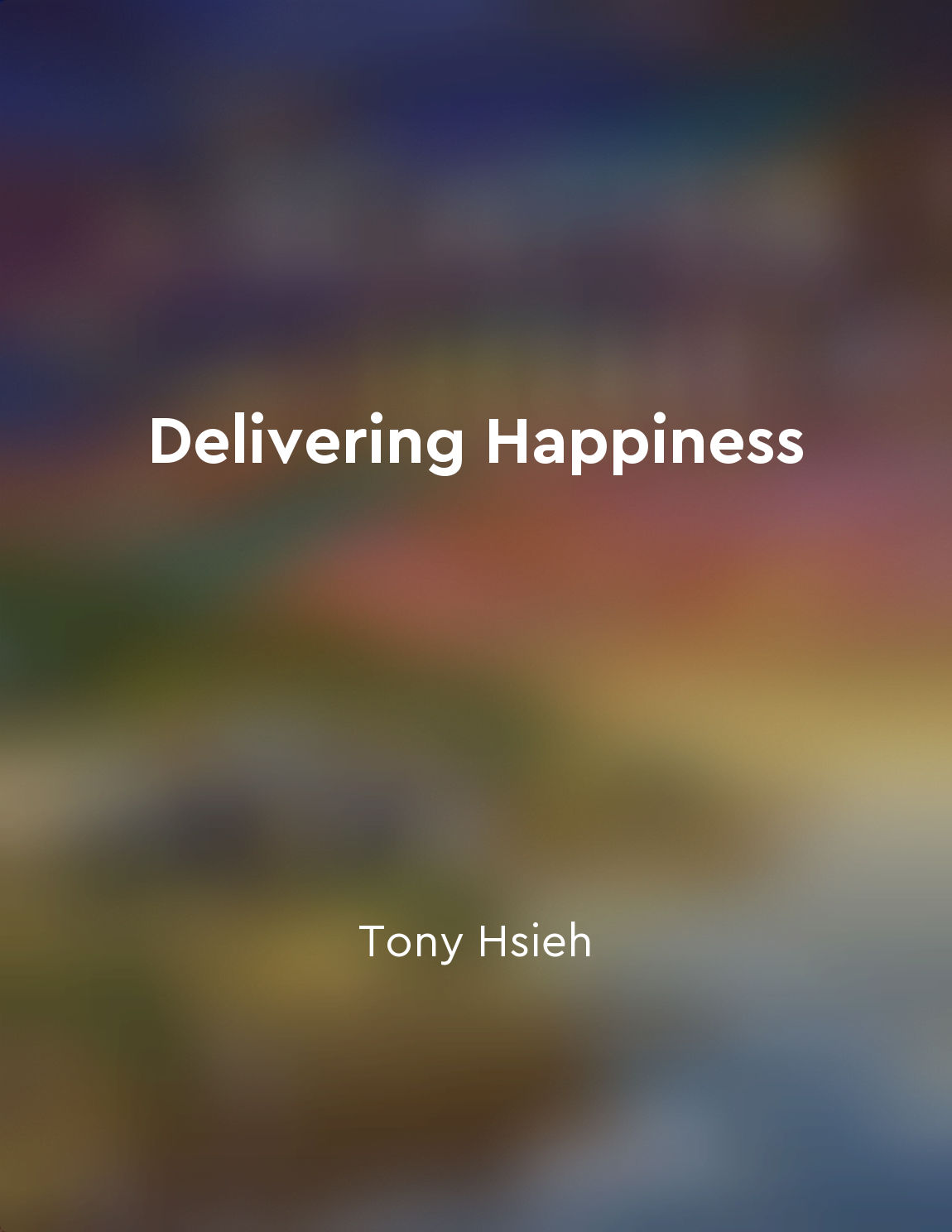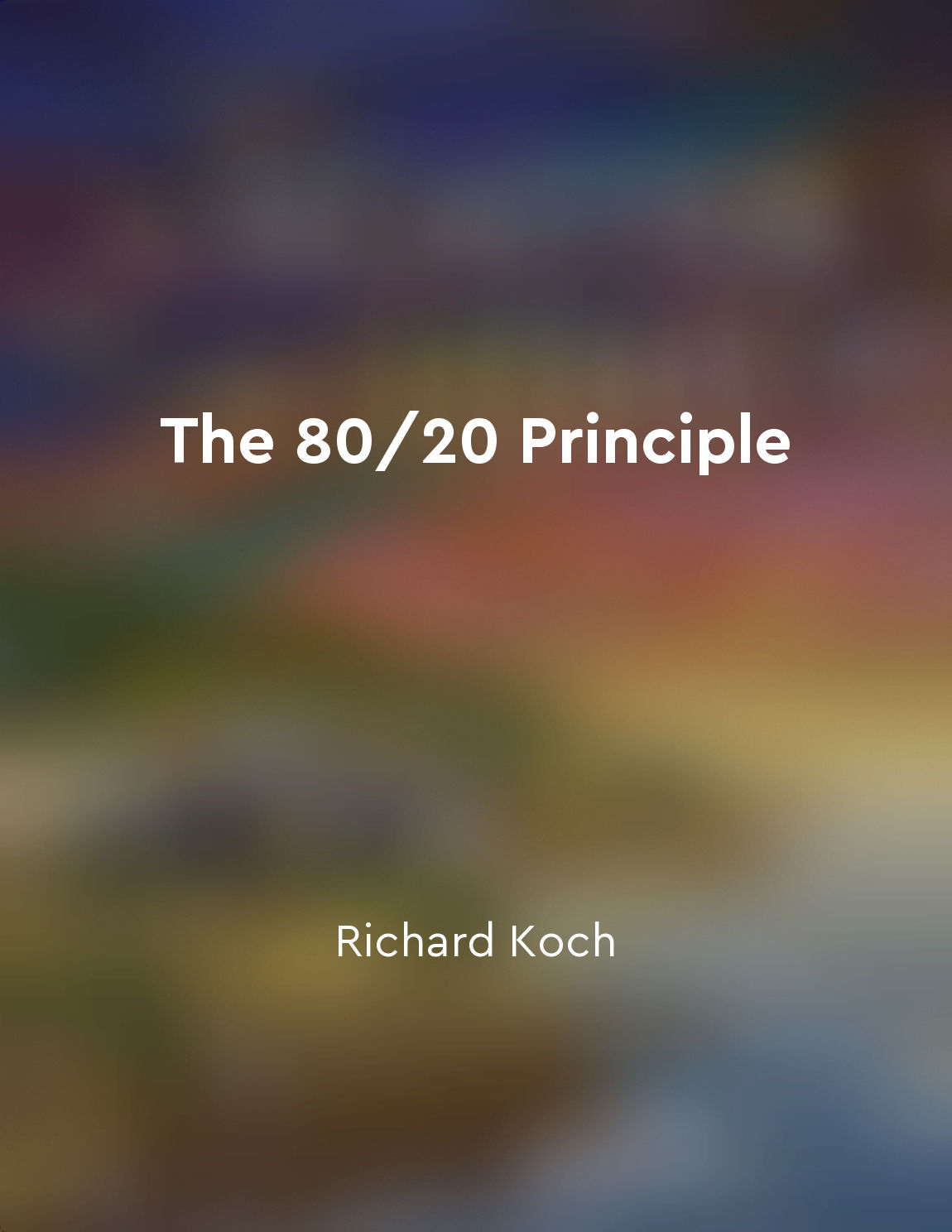The 80/20 rule can be applied to sustainability efforts from "summary" of Accelerating Sustainability Using the 80/20 Rule by Gareth Kane
The 80/20 rule, also known as the Pareto Principle, states that roughly 80% of the effects come from 20% of the causes. This principle can be applied to sustainability efforts in a variety of ways. By identifying the 20% of actions that will have the greatest impact on sustainability, companies can focus their resources and efforts on those areas that will make the biggest difference. In the context of sustainability, this means that a small number of actions can have a disproportionately large impact on environmental and social outcomes. By focusing on these key actions, companies can accelerate their progress towards sustainability goals and make a meaningful difference in the world. For example, a company might find that 20% of its products are responsible for 80% of its environmental impacts. By focusing on improving the sustainability of these key products, the company can make significant progress in reducing its overall environmental footprint. Similarly, a company might discover that 20% of its suppliers are responsible for 80% of its social risks. By working closely with these key suppliers to improve labor conditions and social practices, the company can make a real difference in the lives of workers and communities around the world. By applying the 80/20 rule to sustainability efforts, companies can prioritize their actions, focus on the areas that will have the greatest impact, and accelerate their progress towards sustainability goals. This approach allows companies to make the most of limited resources and drive meaningful change in a world that urgently needs it.Similar Posts

Focus on progress, not perfection
It's easy to fall into the trap of perfectionism. We want everything to be flawless, to meet our high standards. But this pursu...
Environmental policies can have distributional effects
Environmental policies can affect different groups of people in various ways. For example, regulations aimed at reducing air po...
Continuously iterate and refine your innovation process to stay ahead of the curve
To remain competitive in today's rapidly changing business landscape, it is essential to continually evolve and improve your in...

Empower communities to act
To confront the urgent challenges posed by climate change, it is crucial to empower communities to take action. Communities are...

Take calculated risks to achieve success
In the journey to success, one must be willing to step outside of their comfort zone and embrace uncertainty. This means being ...
Use technology to streamline tasks
One of the most effective ways to save time and increase productivity is to leverage the power of technology. In today's fast-p...

The 80/20 Principle states that 80% of results come from just 20% of efforts
The world we live in is filled with imbalances, where a small portion often holds the key to the majority of outcomes. This pri...
